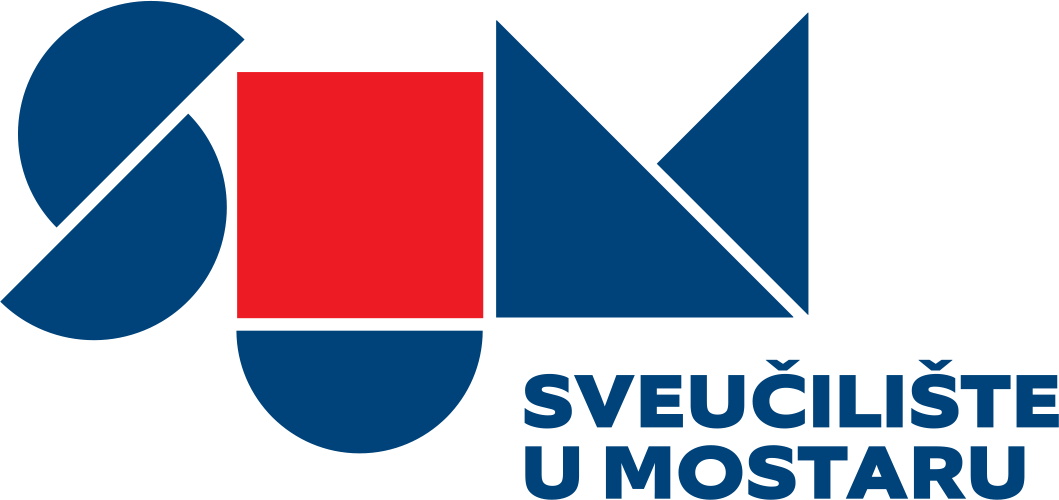THE HISTORY STUDY PROGRAMME
The Department of History offers undergraduate and graduate double-major study programmes, which can be combined with any double-major study programme offered at the Faculty of Humanities and Social Sciences. Students can enrol full-time (state-funded or self-financing) and part-time.
Undergraduate study programme (6 semesters - 180 ECTS)
The undergraduate double-major history study programme provides students with knowledge of the most important historical events of world, Croatian and Bosnian-Herzegovinian history from all historical periods.
Upon completion of the undergraduate double-major history study programme students will be able to:
- specify, define and interpret the most important historical events and processes from ancient, medieval, early modern and modern history as well as contemporary era.
- identify and define the most important concepts of history;
- compare and analyze different interpretations of historiography and approach them critically;
- point out the importance of historical facts in shaping the image of the past;
- write an essay and seminar paper using given sources and literature and a defined methodology;
- recognize and interpret historical literary sources for certain courses;
- formulate their own opinions about certain historical events and processes;
- independently use literature and sources as well as develop a critical attitude towards them.
Upon completion of the double-major undergraduate history study programme students acquire the academic title Bachelor of History.
Bachelors of History can be employed in institutions requiring first level university qualifications. These include different types of employment in journalism, libraries, tourist agency organizations, diplomacy and various institutions. Bachelors of History can enrol in the graduate teacher training study programme at our Faculty or a related study programme with teacher training track or professional orientation at other Universities at home and abroad.
Graduate study programme (4 semesters – 120 ECTS)
The graduate double-major history study programme – teacher training track enables students to organize the process of learning and teaching history in primary and secondary schools. This study programme allows students to broaden their acquired knowledge, especially in the areas which are the subjects of their narrow interest (such as: ancient history, medieval history, early modern history and the history of modern and contemporary age).
Upon completion of the graduate double-major history study programme, students will be able to:
- define and interpret the complex historical and social processes and events, as well as point out the contemporary paradigms in history science;
- identify and define the most important concepts in the methodology of historical research;
- independently conceptualize and write professional or scientific papers according to the standards of scientific methodology;
- analyze, interpret and present certain historical sources;
- be familiar with the basic contents of historical ancillary sciences;
- be familiar with the methodics and didactic features of modern teaching;
- independently conceptualize, prepare and conduct teaching in elementary and secondary schools;
- apply appropriate methods and types of tasks in teaching;
- apply the acquired theoretical and practical knowledge with practical work in the classroom;
- develop professional knowledge, skills and professional ethics.
Upon completion of the graduate history study programme students acquire the academic title Master of History.
Masters of History can teach independently or enrol in postgraduate studies. Employment possibilities include teaching history in certain educational institutions; different jobs in educational institutions, archives and museums where historians are required; work in libraries, journalism, radio or TV, or in some local and state administration, diplomatic service, etc.
Upon completion of the five-year teaching-oriented programmes offered by the Faculty of Humanities and Social Sciences, students will acquire the qualifications for teaching in primary and secondary schools, according to the EU standard of a minimum 60 ECTS in the teaching-oriented courses within the total of 300 ECTS. The above-mentioned 60 ECTS standard is acquired through the teaching-oriented programme and general courses (the Teaching Module) during both undergraduate and graduate studies.
Upon completion of the teaching-oriented study programmes offered by the Faculty of Humanities and Social Sciences, and by passing general courses, students will be able to:
- apply their knowledge of human development, socio-cultural and individual differences in order to help students achieve their best;
- recognise educational needs of gifted students, students with developmental or learning difficulties, as well as the needs of students who belong to different vulnerable groups;
- create safe, stimulating and inclusive environment, according to every student’s needs;
- demonstrate their knowledge of regulations, laws and conventions which regulate the protection of children’s rights;
- apply relevant knowledge of methods of efficient teaching of different content, including potential difficulties students may encounter;
- plan the teaching process and learning outcomes in accordance with the students’ developmental level, abilities and needs;
- evaluate their work and plan further development of their professional competencies;
- demonstrate their knowledge of the standards and ethical principles of the teaching profession;
- apply different strategies in order to develop partnership between family, school and community;
- participate in team work in different educational contexts;
- demonstrate their knowledge of the educational system and legal regulations, including the organization and methods of school management;
- create projects and conduct research in order to improve the work of their school;
- independently make decisions about grading and evaluating students and share responsibilities with other individuals relevant for the students’ development;
- independently make assessments, judgements and decisions in educational contexts.



